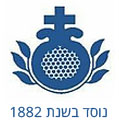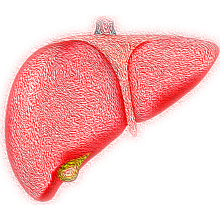You are here
liver unit
The liver unit has been operating since 1998 to provide an available, close, and immediate response to liver diseases, biliary tract diseases, digestive system diseases, especially inflammatory bowel diseases.
Types of diseases
The liver viruses (HAV, HBV, HCV, HDV, HEV)
Alcoholic and non-alcoholic fatty liver diseases, hereditary liver diseases (Wilson's, hemochromatosis and many more), immunological diseases (Autoimmune Hepatitis, Primary Biliary Cirrhosis, Primary Sclerosing Cholangitis, Granulomatous Hepatitis, IgG4-Autoimmune Disease and more), gallstone diseases, liver diseases Other metabolic diseases, vascular diseases of the liver (such as portal vein thrombosis, hepatic venous thrombosis, Budd Chiari Syndrome, VOD disease and more), liver cirrhosis and its complications (portal hypertension, ascites, esophageal varices, splenomegaly, hepatic encephalopathy), liver cancer, liver transplants, digestive tract diseases, inflammatory bowel diseases, celiac disease and gluten sensitivity, malabsorption, vitamin deficiency and anemia.
Diagnostic types
Diagnostic, consultation, and treatment are based on documented and personalized medicine. The diagnostic and treatment are done in collaboration with other departments of the Hospital and with the help of other large hospitals, especially the Hadassah Ein Kerem Medical Center.
The diagnosis includes a wide range of blood tests, genetic tests, X-ray imaging, including the advanced ones (from ultrasound and duplex tests to endoscopic ultrasound, CT and MRI with all their protocols, abdominal angiography, mappings and more), liver biopsies including targeted nodules, transjugular liver biopsies and measurement portal pressures in the liver, non-invasive methods for estimating the severity of liver damage (Fibro Test, Steato Test, Acti Test, Fibroscan, Fib-4, NAFLD-Score and also HOMA-IR), gastro and colonoscopy endoscopic tests (through the Gastro Institute), immunological tests, endothelial function, and more.
Emphasis is on early screening of liver nodules among populations with increased risk.
Types of treatment
Treatment of complicated nursing care patients in an unstable condition who suffer from medical problems for which hospitalization in a general hospital is not required and on the other hand requires medical care and monitoring which is difficult to perform in a home setting.
Treatments include vaccinations against hepatitis viruses (active and tolerant, including the latest ones), antiviral drugs for the treatment of hepatitis B and C including the latest drugs, treatments for immunological and metabolic diseases including fatty liver disease, counseling for a healthy lifestyle and follow-up, milestones for multidisciplinary treatment In fatty liver disease, biliary obstruction treatment including ERCP /PTC, hepatobiliary surgeries and resections, liver transplantation, liver cancer treatment (chemoembolization, radioembolization with Sirtex, radiofrequency, radioablation, immunotherapy, Nixbar systemic treatments and PD1 inhibitors), endoscopic esophageal variceal treatment and gastric varices in advanced hardening, climbing the septum and bleeding varices, encephalopathy treatments with lactulose and rifaxin and even more advanced preparations such as OCERA, treatment of autoinfection with ascites fluid and ascites (including diuretics, punctures with administration of albumin, alpha pump), treatment of kidney and lung complications due to liver , giving transfusions of blood and its products and intravenous iron, and more.
In inflammatory bowel diseases, we provide a wide range of treatments including biological treatments in the health basket (infliximab, adalimumab, and vedolizumab), which are planned to be in the basket in the future. As part of the unit, clinical studies are conducted in the areas of liver and digestive tracts and include the advanced drugs that are not available for hepatitis viruses, encephalopathy and ascites, fatty liver, constipation, diverticulitis, and inflammatory bowel diseases (in fruitful collaboration with Dr. Rawia Moalem, director of the Gastro Institute).
Activities in the community to raise awareness
With the establishment of the unit, it soon became clear that there was a great need to provide this service alongside the desire of family doctors to acquire knowledge in the field. From here the service and the interaction with the population/doctors and patients developed in many directions:
In terms of screening programs, many primary and secondary screening programs are conducted for HBV and HCV viral liver diseases in both the Arab and Jewish populations. Some programs are supported by research funds and others are done on a professional basis in regular health settings. Also, a computerized database on inflammatory bowel diseases was created. We were not surprised to find that the database was immediately considered the treasure of the unit.
As for training and teaching, many activities are initiated, including numerous lectures on liver disease updates with great compliance. In 2009 and 2010 we managed to organize 3 large conferences with up to 250 participants in Nazareth (two conferences) and in East Jerusalem. In each event, the unit team collaborated with the hospital teams in unprecedented harmony for the success of the programs. This is in addition to small conferences on an ongoing basis.
מחשבון בריאטריה
Do you perform a fibroscan test?
Yes, the test is performed
You have to make an appointment through the nurse in charge
You must have a Financial authorization letter - (code L1030)
Do you work with all HMOs?
Yes, they work with all HMOs, and also with the "Mushlam Card" (Clalit) and "Golden Card" (Maccabi)


